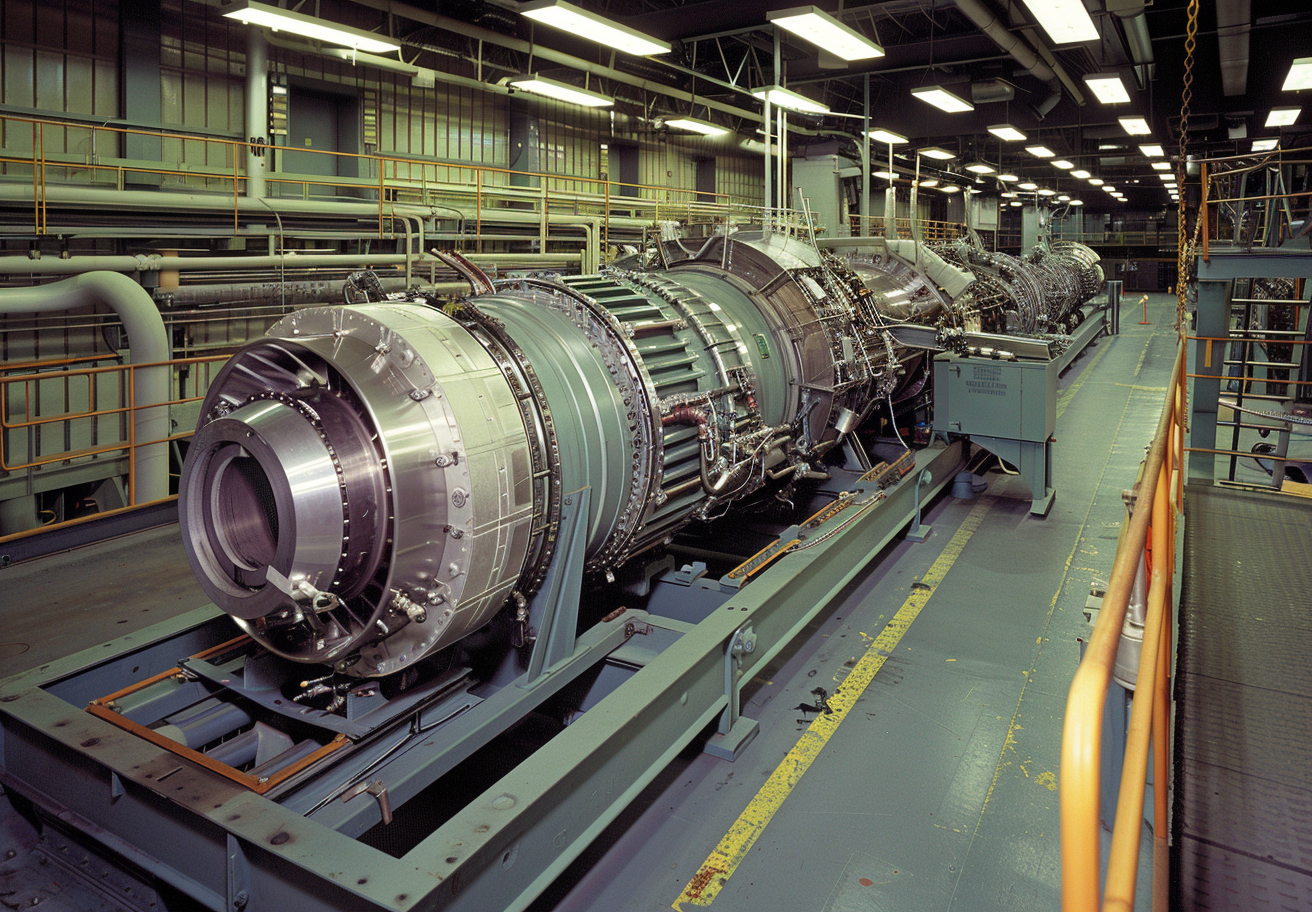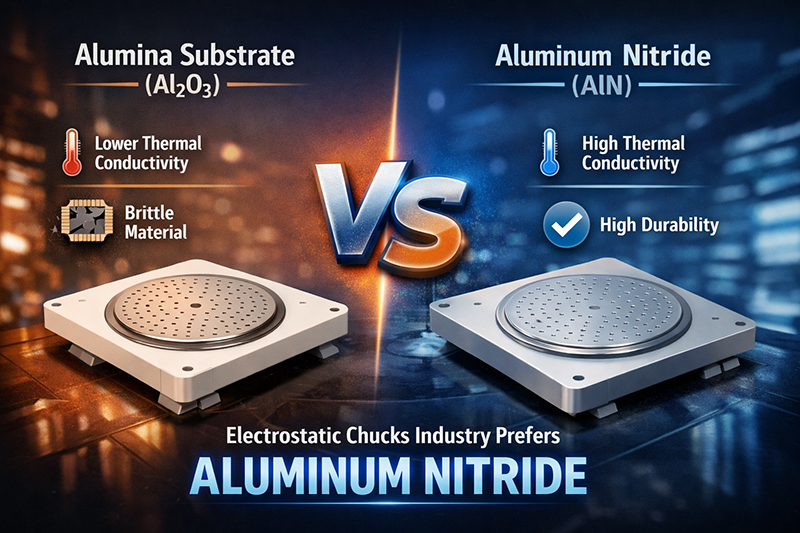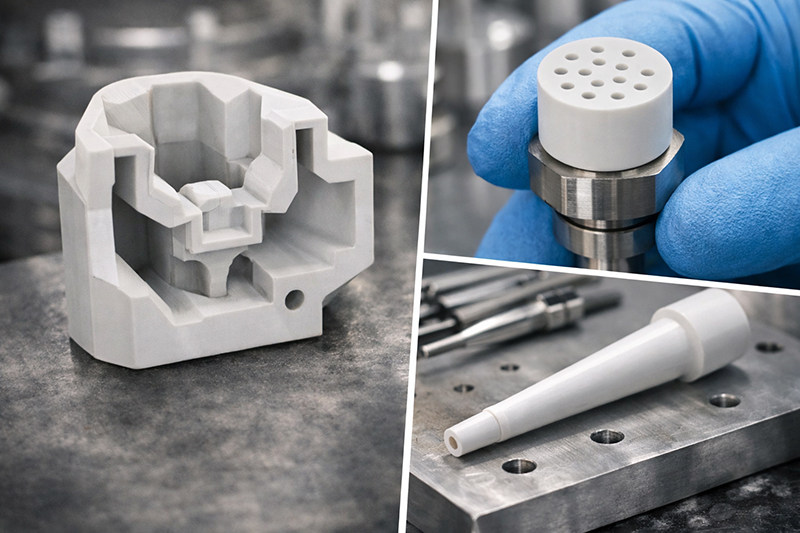Silicon Nitride Bearing Balls: The 4000 MPa Solution for Aerospace Applications
Introduction
Aerospace engineering needs materials that can handle tough conditions. Bearings in this field face high pressure and temperature. Silicon nitride is changing the game. It offers a compressive strength of 4000 MPa. This makes it a reliable choice for demanding aerospace applications.
Silicon nitride is also lightweight. It resists wear and corrosion better than traditional materials. These traits make it ideal for engines, satellites, and space missions. In this article, we will explore its properties, uses, and impact on aerospace technology.
Properties of Silicon Nitride
Compressive Strength
Silicon nitride’s compressive strength reaches 4000 MPa, far exceeding traditional materials like steel, which offer around 2500–3000 MPa. This makes it ideal for handling extreme pressures in aerospace systems like jet engines and turbines.
Lightweight Advantage
Silicon nitride is 30–40% lighter than steel. This reduces the weight of critical components, leading to improved fuel efficiency and greater payload capacities. For aerospace applications, weight savings directly impact performance and cost-effectiveness.
Thermal Resistance
The material performs exceptionally well at high temperatures, maintaining its strength beyond 1000°C. This property makes it suitable for environments like jet engines or space missions, where extreme heat is common.
Wear and Corrosion Resistance
Silicon nitride resists wear and corrosion even under harsh conditions. It functions reliably in vacuum environments, high humidity, or without lubrication. This reduces maintenance needs and increases the lifespan of components.
Scientific Backing
Laboratory tests confirm the material’s superiority over steel and other ceramics. Studies show its ability to handle high-stress environments without degradation, making it a proven solution for demanding aerospace applications.
Challenges in Aerospace Bearings
Core Challenges
Extreme Pressure and Temperature
Aerospace bearings face intense pressure and high temperatures. Jet engines generate extreme heat during operation, often exceeding the limits of traditional materials. Bearings must also endure high rotational speeds and heavy loads without failure.
Weight Reduction Needs
Every gram counts in aerospace engineering. Reducing weight is critical for fuel efficiency and payload capacity. Traditional materials like steel, while strong, are heavy. Engineers often struggle to balance strength and weight in critical components.
Wear and Corrosion Problems
Bearings in aerospace systems operate in harsh environments. These include vacuum conditions in space, high humidity, or areas with minimal lubrication. Steel and other metals are prone to wear and corrosion in such settings, leading to frequent maintenance or failure.
Limitations of Traditional Materials
Conventional materials like steel or chromium alloys struggle to meet the growing demands of modern aerospace systems. They degrade quickly under stress, lose strength at high temperatures, and require regular replacement. These issues increase operational costs and reduce reliability.
Why Silicon Nitride Is the Solution
Silicon nitride bearing overcomes these challenges. Its high compressive strength allows it to handle extreme loads. Its lightweight nature helps meet weight reduction goals. It also resists wear and corrosion, making it more reliable in harsh conditions. With silicon nitride, aerospace bearings can perform longer with fewer failures.
Applications and Case Studies of Silicon Nitride in Aerospace
Satellites and Space Missions
Silicon nitride bearings play a key role in satellites and space probes. Reaction wheels and gyroscopes, which are critical for precise positioning, rely on bearings that can perform in vacuum environments. Silicon nitride’s resistance to wear and corrosion ensures long-term reliability, reducing the risk of failure during extended missions.
Case Study:
Challenge: A satellite manufacturer faced frequent bearing failures due to wear and degradation in vacuum conditions, leading to shorter mission lifespans and costly repairs.
Solution: By switching to silicon nitride bearings, the company achieved zero failures over five years. The material’s corrosion resistance and durability in extreme conditions significantly extended satellite operational times.
Jet Engines and Turbines
Jet engines demand materials that can handle extreme heat and stress. Silicon nitride bearings perform exceptionally well in these conditions. They maintain their strength at temperatures exceeding 1000°C and operate reliably at high speeds. This makes them a preferred choice for high-performance rotors and turbines.

Case Study:
Challenge: A leading aerospace company needed to reduce the weight of jet engine components without sacrificing performance, particularly under high heat and stress.
Solution: The company replaced steel bearings with silicon nitride. The change reduced component weight by 20% and allowed engines to operate at higher temperatures, improving fuel efficiency and reducing wear.
Mars Rovers and Deep-Space Exploration
Space exploration missions, such as Mars rovers, operate in extreme environments. Silicon nitride bearings withstand temperature swings, dust, and radiation. Their durability ensures smooth operation even in these challenging conditions, making them essential for long-term space missions.

Case Study:
Challenge: On Mars, traditional bearings faced risks from abrasive dust, extreme cold, and the lack of lubrication, threatening rover mobility and longevity.
Solution: Silicon nitride bearings delivered reliable performance under these harsh conditions. They operated smoothly without lubrication, reducing weight and complexity while maintaining the rover’s mobility over its extended mission duration.
Broader Impact and Industry Adoption
Silicon nitride bearings provide more than just aerospace benefits. Their lightweight and heat-resistant properties are transforming industries like automotive and renewable energy. For example, electric vehicles use them to improve efficiency and reduce battery strain. Wind turbines rely on their durability in high-stress components, increasing energy output.
Environmental benefits are another key factor. By reducing component weight, silicon nitride bearings lower fuel consumption and emissions in aerospace and automotive applications. Advances in manufacturing are also driving down production costs, making these bearings accessible to more industries. Silicon nitride is not just for aerospace—it is a material for the future.
Conclusion
Silicon nitride is revolutionizing aerospace engineering. With its unmatched compressive strength of 4000 MPa, lightweight nature, and resistance to heat, wear, and corrosion, it addresses the toughest challenges in this demanding field. From satellites to jet engines and Mars rovers, its applications prove its value under extreme conditions.
At Advanced Ceramic Materials (ACM), we are proud to support aerospace advancements by providing high-quality silicon nitride materials. With our expertise, engineers can achieve greater performance and reliability in their designs.
As aerospace technology advances, silicon nitride bearings are set to play an even greater role. Their ability to enhance performance, extend lifespans, and reduce maintenance costs makes them an essential choice for the aerospace industry today and in the future.
{{item.content}}
LEVE A REPLY
{{item.children[0].content}}
{{item.content}}
LEAVE A REPLY
SUBSCRIBE OUR NEWSLETTER
- How PBN Crucibles Ensure the Quality of GaN & SiC Epitaxial Materials
- SiC vs. Quartz Focus Rings: A Cost and Performance Analysis for Advanced Etch
- AlN Ceramic Substrates: Enabling Next-Gen Electrostatic Chucks
- The Amor of Semiconductor Tools: Why High-Purity Al2O3 & AlN Are Preferred for Plasma Process Chambers
- Silicon Carbide - Ultra-High Temperature Ceramics for Extreme Environments










